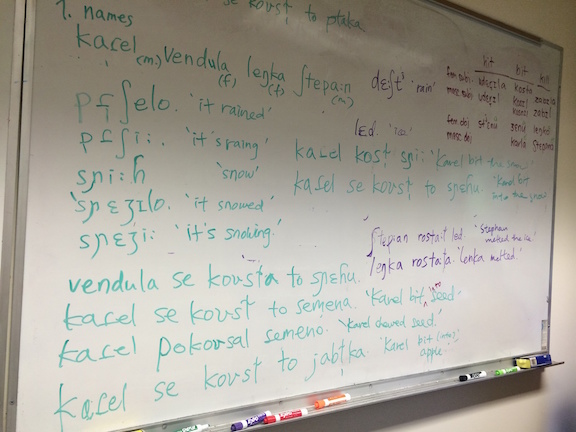
Research Questions
The linguistic questions that have always intrigued me the most are seemingly basic questions (What is a subject? What is a noun? What is a word?) that turn out to be complex, hard to define, or otherwise fiddly.
- Subjecthood
- Agreement
- Conjunction
- Encoding events
- Variation
What kinds of phrases "count" as a subject in a given language? Are there multiple syntactic positions held by "subjects", and what properties are associated with each one? What properties are held by non-canonical subjects, such expletive "it", the subjects in existential constructions, and postverbal subjects?
How and when does a verb agree with its arguments? How do we account for unexpected patterns of predicate-argument agreement? In what ways is adjective-noun concord similar to predicate-argument agreement, and in what ways do they differ?
What are the possible ways of encoding conjunction/coordination across languages? How should we account for the structure and meaning of conjoined phrases?
What is the relationship between happenings that take place in the real world and the verbs we use to describe them? What is happening when speakers use the same verb to describe events of distinct types?
How do speakers differ from one another in how they use language -- in particular, in how they use syntactic and morphological variants to "say the same thing"? How do individual speakers exploit the resources of their language to express themselves?
Languages
I gather data for my work primarily by linguistic consultation with native speakers of the language of interest. I also collect data by running online judgement studies and conducting sociolinguistic interviews.
- Russian, and other Slavic languages My research on conjunction, agreement, and phrase structure focuses on Russian.
- English dialects
- And more!
Along with the Voices of California Project, I've conducted fieldwork documenting English as it's spoken in California. My work on agreement variation in English comes from this corpus.
I've also worked on Kazakh (Turkic), Marathi (Indo-Aryan), Chácobo (Pano).